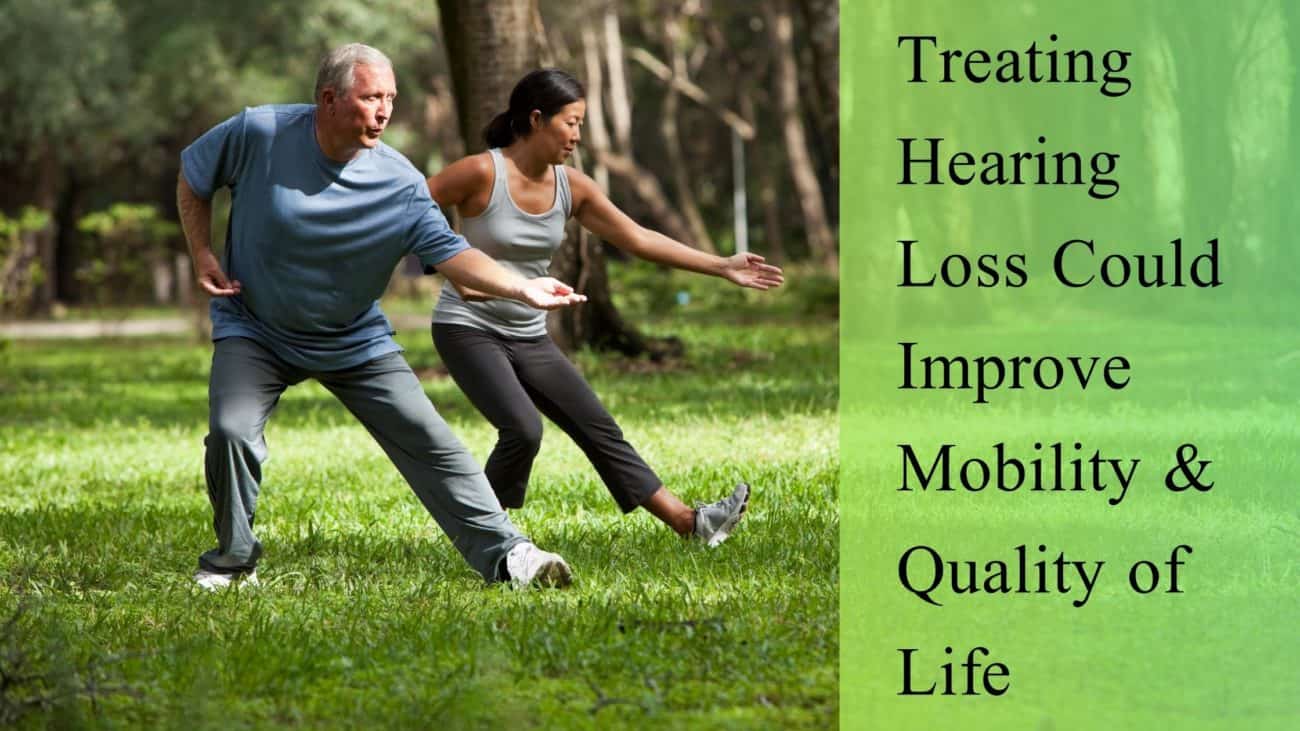- How to Adjust to Life With Hearing Loss - July 15, 2024
- Best Careers For Those With Hearing Loss - June 10, 2024
- Knowing When It’s Time for Re-Fitting Hearing Aids - May 6, 2024
Studies show that people experiencing hearing loss are more than twice as likely to limit their movement. Restricted movement includes participating less in hobbies, social activities, and spending less time with others. This can take a toll on the overall quality of life in a myriad of ways – impacting relationships, social life, and health. Treating hearing loss can alleviate symptoms that lead to restricted mobility, allowing people to navigate daily life with greater ease.
Hearing Loss Symptoms
To understand how hearing loss can affect mobility and quality of life, it is helpful to know about the symptoms of impaired hearing. Hearing loss reduces a person’s capacity to hear and understand speech as well as sound which produces a range of symptoms including the following:
- Tinnitus: a buzzing or ringing-like noise in the ears.
- Sounds are slurred, muffled, or distorted.
- Frequently asking others to repeat themselves, speak louder, or slower.
- Difficulty hearing, especially in environments with background noise.
- Lip reading to identify individual words.
- Increasing the volume of electronic devices (phone, TV, speaker, etc.)
- Missing parts of what others are saying or feeling confused during a conversation.
- Needing to move to a quieter area to be able to hear more clearly.
- Being able to hear better out of one ear compared to the other.
- Feeling exhausted after conversations and social interactions.
These symptoms can be experienced from mild to severe depending on the degree of hearing impairment present. Over time, these symptoms take a toll on communication which often leads to several outcomes that impact the quality of life.
Impact of Hearing Loss on Mobility & Quality of Life
Studies conducted by researchers at the University of Jyväskylä and the University of Tampere (in Finland) examined the link between hearing loss, mobility, and quality of life. One of their studies included 848 participants, ages 75-90, who were monitored and evaluated for two years. Researchers found that people with hearing loss were more than twice as likely to limit their movements compared to those without hearing loss. This lack of movement can adversely impact the quality of life by reducing time spent engaging with others and social activities.
Hearing loss symptoms present numerous barriers to effective communication. Constantly experiencing symptoms strains communication, making it challenging to participate in conversations. So it is common for people with untreated hearing loss to cope by avoiding conversations altogether. This means spending less time with family and friends, not participating in hobbies, and skipping out on social events. Social withdrawal is a major outcome of untreated hearing loss which erodes social life. This can affect relationships as well as one’s mental health in significant ways. Spending less time with others can create tension, distance, and frustration in relationships which deteriorates connection. This can contribute to the development of depressive symptoms by increasing loneliness, anxiety, and isolation. These realities mean engaging less and retreating more, restricting mobility, and impacting the quality of life.
Benefits of Treating Hearing Loss
Fortunately, there are effective ways hearing loss is treated that alleviate the toll symptoms can take. The most common treatment for hearing loss is hearing aids – medical devices that are designed to absorb, amplify, and process sound. This provides the ears and brain with profound support, making it easier to hear. Hearing aids alleviate hearing loss symptoms and maximize hearing capacity which offers countless life-changing benefits including:
- Strengths of communication: hearing aids provide ample support in all environments, increasing one’s capacity to hear and participate fully in conversations.
- Improves relationships: communication is key to sustaining relationships. Treating hearing loss allows people to spend quality time with loved ones and communicate comfortably, nurturing closeness and improving relationships.
- Enriches social life: the hearing support hearing aids provide is especially helpful in together listening environments like social settings where there tends to be more background noise. People are better able to navigate social settings and engage with others which enrich social life.
- Enhances overall health: treating hearing loss also reduces health risks that are associated with impaired hearing that is left untreated. Hearing aids improve brain health, increase spatial awareness, and safety.
These benefits allow people to live richer lives that are not restricted by hearing loss. Contact us to schedule an appointment for a hearing consultation – the first step in prioritizing your hearing health.

